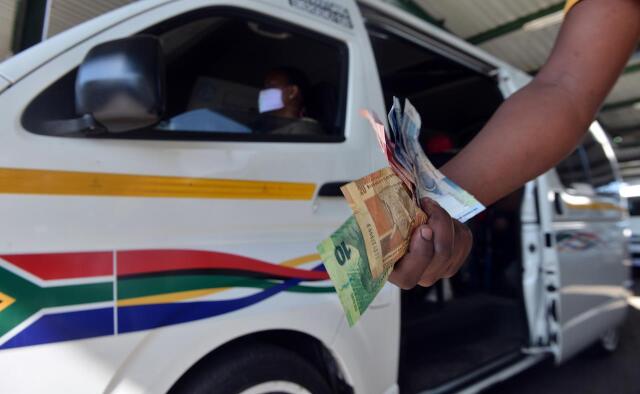The conditions set out have left many operators in limbo and the process has been nothing but dubious – Santaco spokesperson
THE TAXI industry has bemoaned the conditions set out by the Department of Transport for its members to qualify for the Covid-19 relief funds.
SA National Taxi Council (Santaco) spokesperson Thabisho Molelekwa said their biggest gripe was the conditions attached to the funds, which he said were too stringent.
“Our problem is the conditions which have been attached to this fund by the government. This is what has been holding back the disbursement of funds. The conditions have left many operators in limbo and the process has been nothing but dubious,” said Molelekwa.
He said in their last negotiations they were asking for the Department of Transport to persuade Treasury to relook at the conditions, which he said were impossible to comply with.
Molelekwa said that at a recent industry lekgotla they took a resolution that provinces must distribute the funds the way they saw fit, including giving them to operators directly or setting up an empowerment programme. Structures were making submissions in this regard.
“We also had a strong resolution at the lekgotla that the money be distributed as a matter of urgency and are hoping this will be done before the end of the year.”
He said they would meet to further consider resolutions of the lekgotla, including the matter on Covid-19 relief funds, and were positive they would get a positive outcome.
Some of the conditions set out by the department include that the taxi operations must be formally registered as a business entity. The registered business must have a business banking account into which the relief allowance will be paid into.
Furthermore, these businesses must be registered for tax and other applicable taxes related to running a business in South Africa. They must also register employees with the Unemployment Insurance Fund (UIF), Compensation Commission and Skills Development Levy, and be in possession of a valid operating licence or receipt as proof of application for an operating licence.
“The fundamental problem is that they wanted operators to register companies and put operating licences into the name of an entity and then apply through the name of the entity.”
He said while the government argued that the move was part and parcel of the formalisation process, which the industry did not deny was necessary, the process in this situation was cumbersome.
“They already have our data with the South African Revenue Service and other databases; why not use that very data and pay the industry then continue the process to formalise and not have two running parallel processes? The funds are needed as a matter of urgency.”
On last week’s march regarding the same matter by the National Taxi Alliance, he said that organisation was playing on the emotions of desperate operators because it knew what the situation was in terms of the funds.
He said the protest was a publicity stunt. “We were the ones who championed and advocated for a relief fund before anybody could think about it.”
Molelekwa added that the rhetoric that the alliance was not given speaking rights among others at the national taxi lekgotla, which led to its withdrawal, was “pathetic”.
“They ought to know that this starts from the provincial level, and there are channels to follow to participate, and that is where they have a problem. It is our belief that the National Taxi Alliance had been afforded a fair chance to participate.”
Last week the alliance delivered a memorandum to the Department of Transport and another to the Presidency.
Its general-secretary, Alpheus Mlalazi, said they had to embark on a day of action because they had been constantly snubbed when they raised their grievances regarding the impact of the Covid-19 pandemic.
“You have consistently paid lip service to the issues impacting the taxi industry, and in correspondence to you in two separate letters we demonstrated our willingness to work with you and the department, but you chose to ignore our plea,” he told the deputy minister.








